|
Last night, I had the opportunity to hear a performance by renowned pianist Piotr Anderszewski with three of my students.
As a musician (pianist) who is usually hard at work on stage, I sometimes forget what it feels like to be in the audience... much less what it's like to experience a profound and total feeling of awe. It brought to mind an article I recently read on the health-benefits of awe in our lives (http://www.collective-evolution.com/2017/01/30/feeling-awe-may-be-the-secret-to-health-happiness/). Although I've heard great things about Anderszewski's playing, I wasn't at all prepared for what I was going to hear. I expected nice piano music. Impressive playing. Solid memorization. A large range of dynamics. What he created was actually an expertly crafted novel, from the first note to the last. We hung on to every "word" as it was told to us, waiting for more, and spinning wilding through the adventures he shared with us (and, as I knew some of the repertoire quite well, this effect especially impressed me!). We transcended time and space. His beautiful choreography paired with an infinite color-wheel of sound, that seemed to defy the possibilities of even the best of pianos. I asked them my students at intermission, "Do you... Can you... feel what he is doing with the music?" They did. We talked about everything from memorization to practicing to style, program order, and life on the road. What a gift to be able to open the door to curiosity and possibility through this performance! The Bach did indeed prove his brilliant ability to take us on a tour of an enchanted castle, visiting rooms of ornate decor full of beautifully-dressed dancing to live music (a new ensemble for each). Anderszewski created a new acoustic for each room, and took on the role of choreographer and conductor. The performance was followed by Q&A, giving us a chance to learn more about the performer as a person. Here are some of his highlights:
0 Comments
Time seemed to accelerate during the final segment of the tour. "Wake up - eat breakfast - hop in the van - dress rehearsal - concert - head to hotel" became the familiar routine. And yet, we found ourselves trying to shirk any sort of musical routine; digging deeper and continuing to discover new and beautiful elements to share with our audiences. Subtleties in timing and dynamics that may have been left to chance early on in the learning process were now significant decisions that could alter the entire energy of the performance. We explored the balance of staying honest with a score and infusing it with our own interpretation.
I'd like to share three aspects of musical exploration that I feel are essential to finding this balance:
As performers, we should remember that the majority of the audience usually does not have a relationship with the pieces we are playing that is nearly as intimate as the one we develop through the learning process. The audience is not looking at scores as we play (thankfully!). They are there to enjoy, feel, and experience the soundscape we convey to them. But, because they get to hear the music that is second-nature to us just once - we must help them connect with it instantly. What a neat challenge and special responsibility! A couple years ago, I wrote about one of the challenges we pianists all face: adjusting "instantly" to the piano you are given for your performance. As much as we wish we could bring our favorite piano on the road with us, we have to make do with what we get. Sometimes it's a fantastic surprise... and sometimes it's just a surprise.
There've been a couple challenging pianos on this tour - including an electric piano (please tell me this isn't an indication of the future of classical music!) and a piano with an incredibly heavy action and "dead" upper register (I nearly killed my arms on that one - spent the evening alternating soaking them in hot and cold water). When traveling on a concert tour there are plenty of challenges that pop up: from changes in weather that you may not have anticipated when packing, to changes in the schedule. Flexibility and a positive attitude are "key" to making the most of the opportunity to meet people, experience another culture, and successfully share the essence of your musical program with the audience. It's Spring - the season of music competitions. I've already judged three within the last month (one piano-only, and two concerto competitions for all instruments) and they've been excellent reminders as to what the judges are looking for in the performances .
In each competition the overall level was very high. I wasn't surprised... after all, everyone prepared well and genuinely wanted to give the performance their best effort. But, unfortunately, not everyone can win. So, in a field of "very good" performances, who stands out? Here are three of my top criteria for a winning performance: 1. Clean Playing. Mistakes are forgivable, BUT if someone else has a clean performance they will edge you out. The competitive circuit in music is very competitive, so don't kid yourself that your musicality and expression is enough. The easiest way to narrow down the field is to eliminate those who make mistakes. Strive for consistent clean playing in your practicing. And when mistakes happen, recover quickly. I will take a musically engaging performance over a technically perfect but soul-less performance any day, but if two performers are neck-and-neck, judges tend to go with the cleaner and more convincing one. 2. Conviction. Play it like you mean it! This is not the time to be humble or shy or second-guess your interpretation. Decide what you are going to say and then convince us that this is the way it should be. 3. Dynamic range. Lackluster fortes and moderately soft pianissimos won't draw us into a magical musical world. Most performances have a range between mp-ff. If you want to truly get our attention, follow the dynamics in the music, and use a broad range from ppp to fff. And, within these, explore a variety of sounds, colors, and articulations. 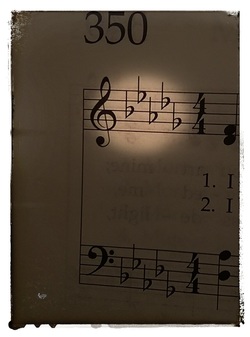 I was called in to substitute the music director at a local church this morning. My responsibilities included leading the congregation in the hymns throughout the service, and playing music for the prelude, meditation, offertory, communion, and postlude. I dug out some beautiful selections that I thought would be appropriate (shout out to my students Taura and Lukas: I included Valse Melancholique and Prelude from Espana) and arrived early enough to get settled, tag the pages in the hymnal, play through the hymns (once each), and circle the spots in the program that I would be playing. The first service went well.* While playing I thought that this experience would make a great topic to share and demonstrate how many of the skills we develop in lessons are important for situations in which we have limited time to learn new music. A few reminders:
After the conclusion of the service a member of the congregation came over to speak with me, and we quickly lost track of time. Soon, it was 10:45; time to get ready for the 11:00 service. I grabbed a bulletin from the front of the church and let out a little gasp. The hymns for this service were all different than the first service. I would barely have time to tag them, and absolutely no time to play through them. I began the prelude while concocting a plan. As the pastor led the church in prayer between hymns, I would look at the next selection and create a mental map of the hymn. This exercised another, very important skill for pianists:
The final selection was a hymn in D-flat major (5 flats). Oh joy... I appreciated all the folks after both services who came over to tell me how much they loved my performance. I resisted the urge to explain what a relief it was that things went well, but instead made an effort to thank them for having me today and wished them a lovely rest of their weekend. :) *Funny moment: an alarm on my phone (one that I didn't even know that I have!) went off at 8:59am, just as I was finishing the prelude. I finished the piece then dove into my bag to turn it off. I am sure my face turned a nice shade of pink. 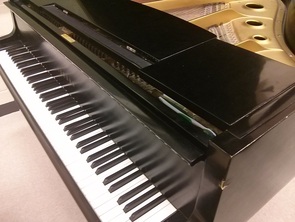 Take a quick peak at the photo on the left. This is the piano that advanced young pianists used at today's NFMC Junior Festival at UMBC. Notice anything odd? Look under the music stand, in the corner closest to the camera. See it now? The white and green... toothbrush????!!! Yep - that's a real toothbrush that was found by one of the festival participants (there was a pencil right by it, too). Though the toothbrush didn't impact the sound of the piano (it would be an interesting prepared piano effect if it were on the strings) it did serve as a good indicator that this instrument is not particularly well-loved. [Sometimes I want to start a new organization: The Society for the Prevention of Cruelty to Pianos] Indeed, students were challenged by this beast of an instrument: from the bass notes not sustaining with the damper or sostenuto pedals, to the una chorda pedal creating intense dissonances and rattles, to an uneven sound quality across the keyboard. Yikes. A problem piano? Definitely. A fluke? Maybe (the recital hall piano was unexpectedly locked... and no one could be reached to come open it). A day in the life of a pianist? Yep. Unlike other musicians, pianists don't get to take their own (or their teacher's) instruments with them for performances. That means we at the mercy of whatever is provided (don't remind me about the times that the concert organizers "didn't realize" I need a piano, or time the TV producer assured me that I can play without pedals for a televised performance with orchestra). Sometimes we luck out and get a beautiful instrument that is easy to play. Other times, we have to work MUCH harder to create an effective performance. Do we give up when we get a piano that isn't up to our normal standards? No! I liken our challenge to the process of a chemist analyzing a water sample: we must evaluate the instrument's strengths and weaknesses quickly (sometimes instantaneously, if we don't have a chance to try out the instrument before diving into the performance) and create a plan of action to make it sound as best as it possibly can. I have witnessed many a fine pianist turn a "bad" piano into a beautifully singing instrument through their expert voicing, determined expression, and careful avoidance of the piano's weaknesses. Thus, I believe whole-heartedly that it can be done. It's not easy... but we need to be ready to step it up a notch when the time calls for it. This challenge can be:
Dr. Stephanie Bruning said that "flexibility is a good middle name for a pianist." I agree! The audience has sympathy for the plight of the performer, however in the end, all they want is a beautiful performance, and it's your job to make it happen. Performance psychology is a very interesting field and important topic for performers of all sorts (musicians, athletes, public speakers, etc). There are many approaches to building and maintaining confidence under pressure. Here are a few of my thoughts on preparing for a successful performance:
After your next recital participation, take a moment to write out answers to the following questions:
I would love to discuss your answers with you! There's an old Polish saying: "How they see you is how they perceive you." Although our art is largely one for the ears, the stage presence of a performer can make a tremendous difference in the audience's experience (as well as their perception of the success of the performance).
Simply put, your performance extends far beyond your playing the notes. The energy (and posture) with which you walk on stage, your eye contact with the audience, your smile, your bow, your movements during your performance, and the way you finish, stand up, smile, bow, and walk off the "stage" area all are all part of the package. If you combine all these elements, they add authenticity and professionalism to your final product... Forget about them and any one of them can take away from it. We are actors and storytellers of the music. The more we can portray and convey the adjectives we would use to describe the music, the more involved the audience feels. Try video-taping your practice/performance and check to see if your physical choreography, posture, and facial expressions really match the mood of the music. Being comfortable with your stage presence takes practice, but yields great results in connecting with the audience. In addition, YOU will feel more comfortable on stage. Realize that performing is a gift you are giving to the audience. They eagerly anticipate getting to hear you. Give it to them with joy! Here are a few helpful articles on stage presence: http://johnranck.net/studio/clinic/practice_corner/stage-presence.html http://voices.yahoo.com/essential-performance-etiquette-5567231.html http://www.hilaryabigana.com/apps/blog/ (a LOT of good advice, including videos) http://triwaymusic.com/Etiquette.pdf http://kimballtrombone.com/2008/08/21/solo-performance-etiquette/ |
AboutElizabeth Borowsky is a pianist, teacher, and composer. She is a Nationally Certified Teacher of Music in Piano (Music Teachers National Association). SubscribeCategories
All
Archives
May 2023
|
Location |
|

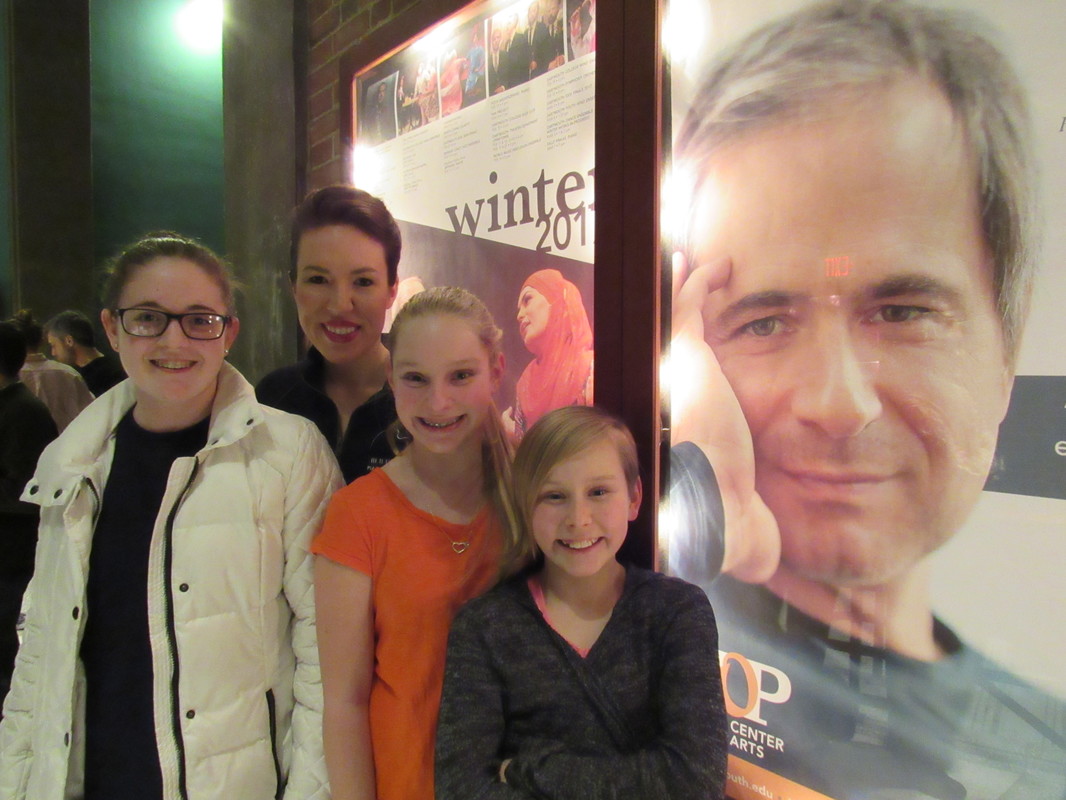
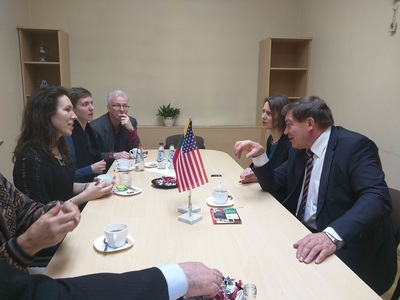
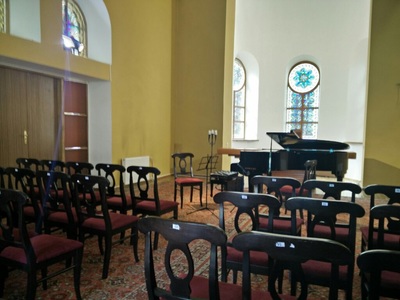
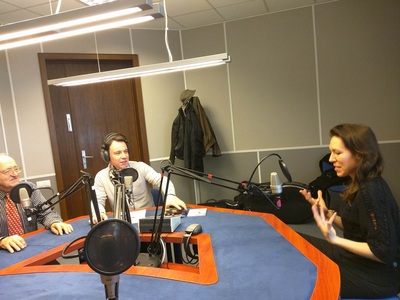
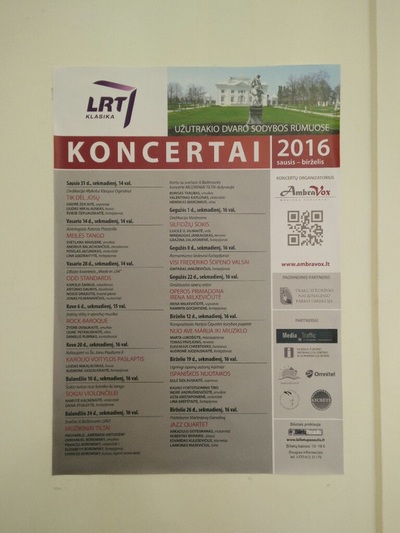
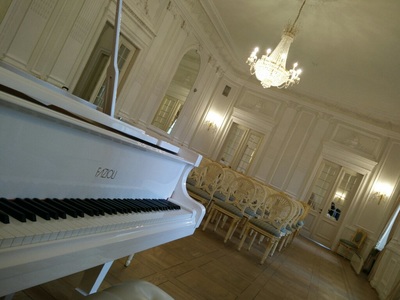
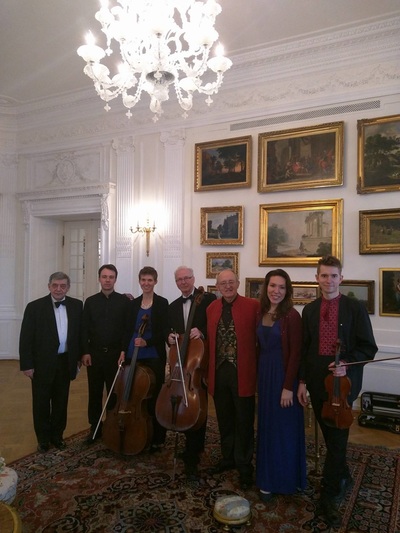




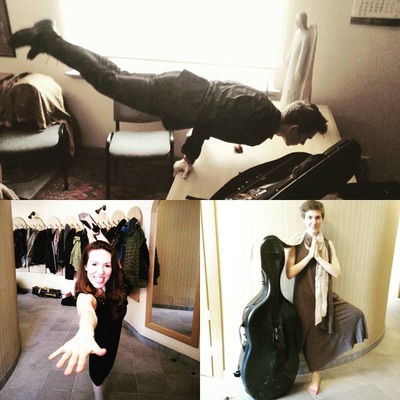
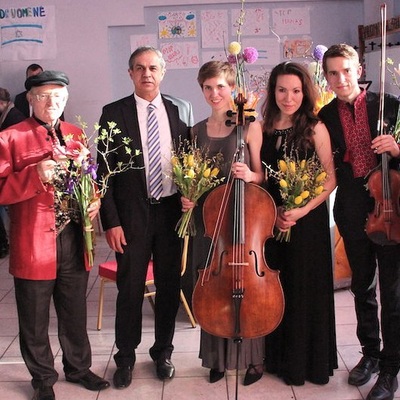
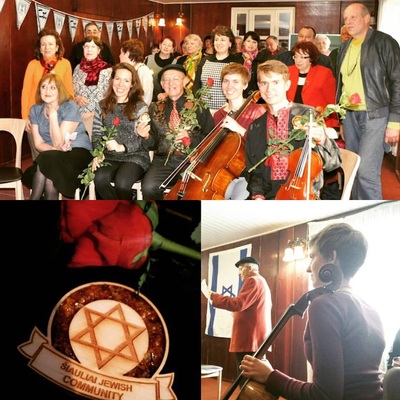
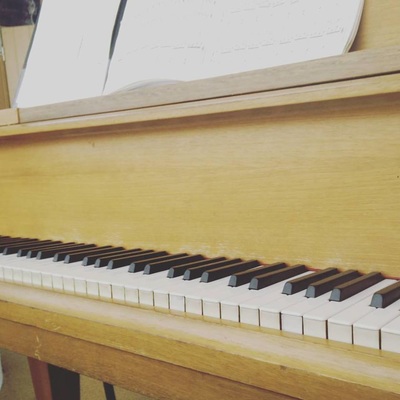
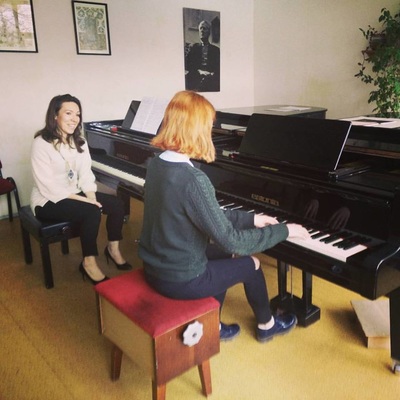
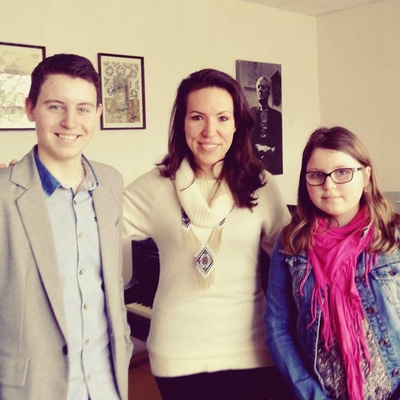
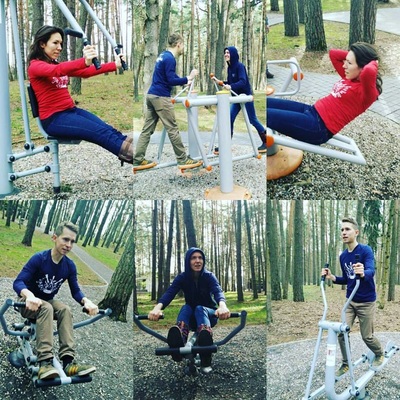
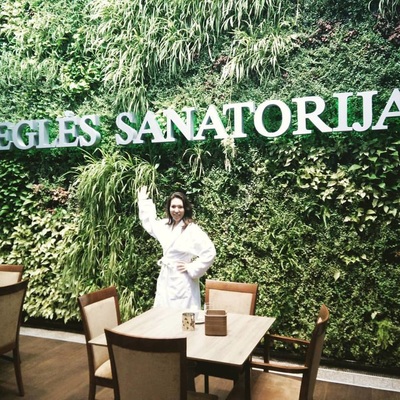
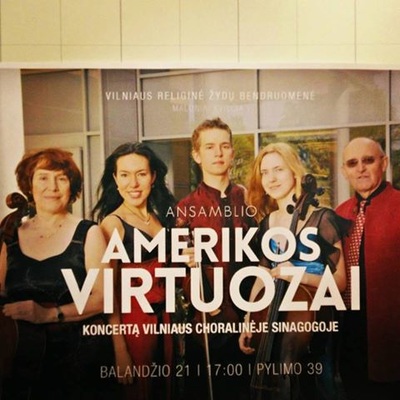
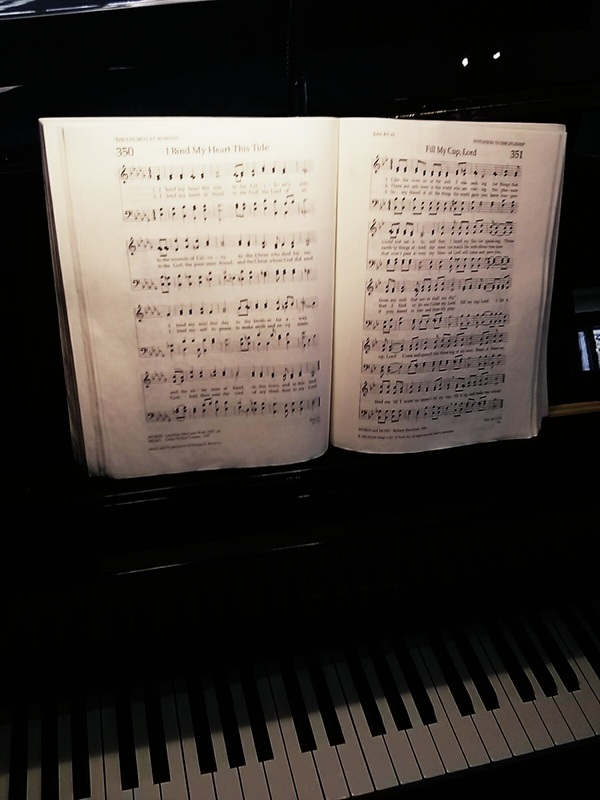
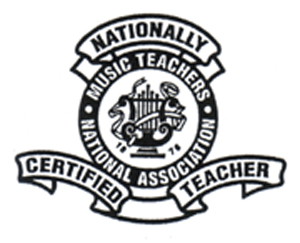

 RSS Feed
RSS Feed